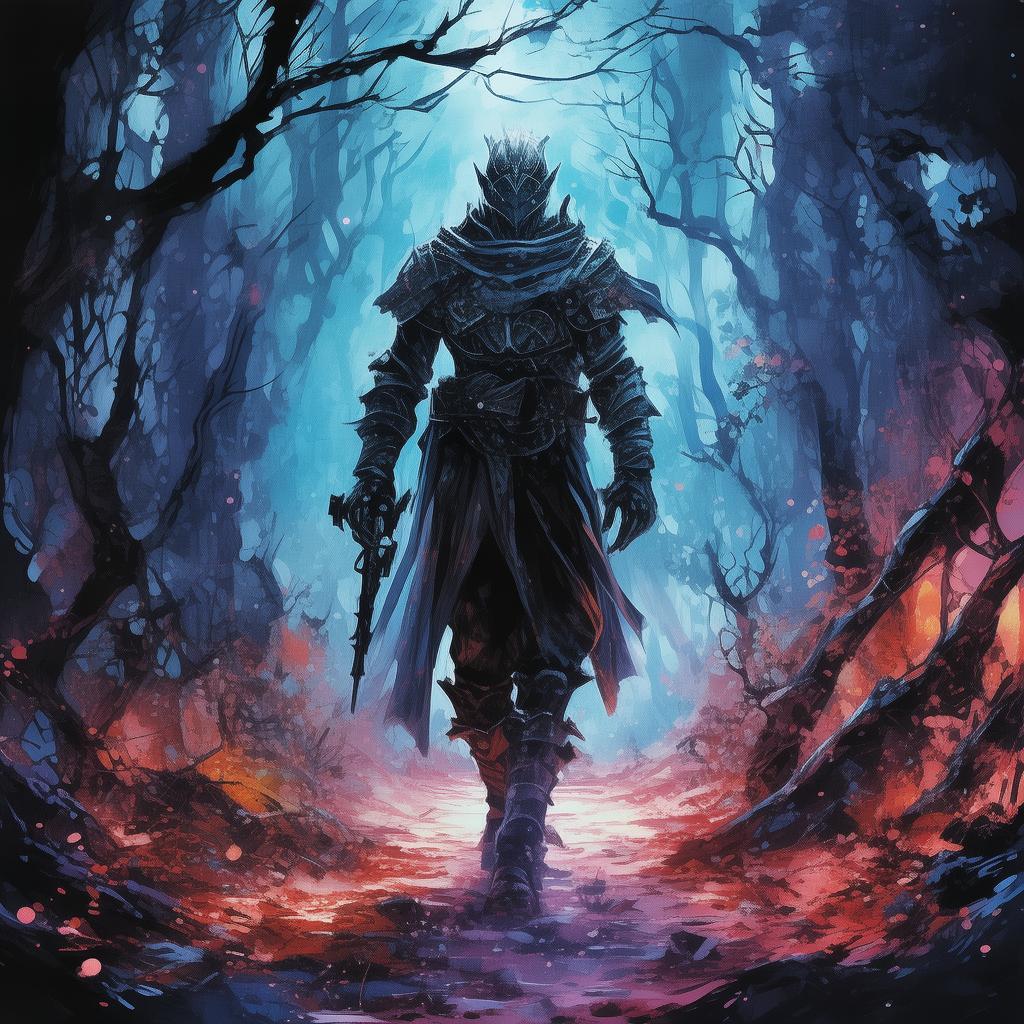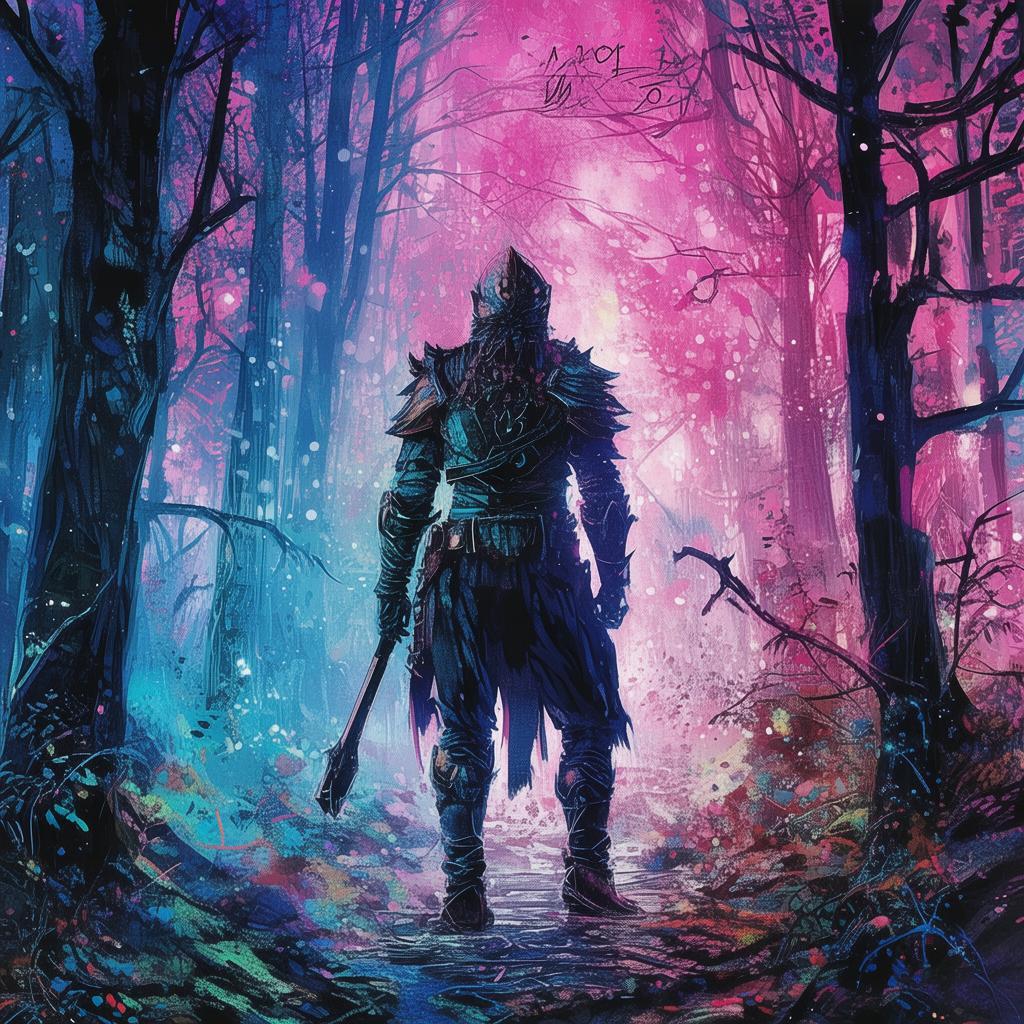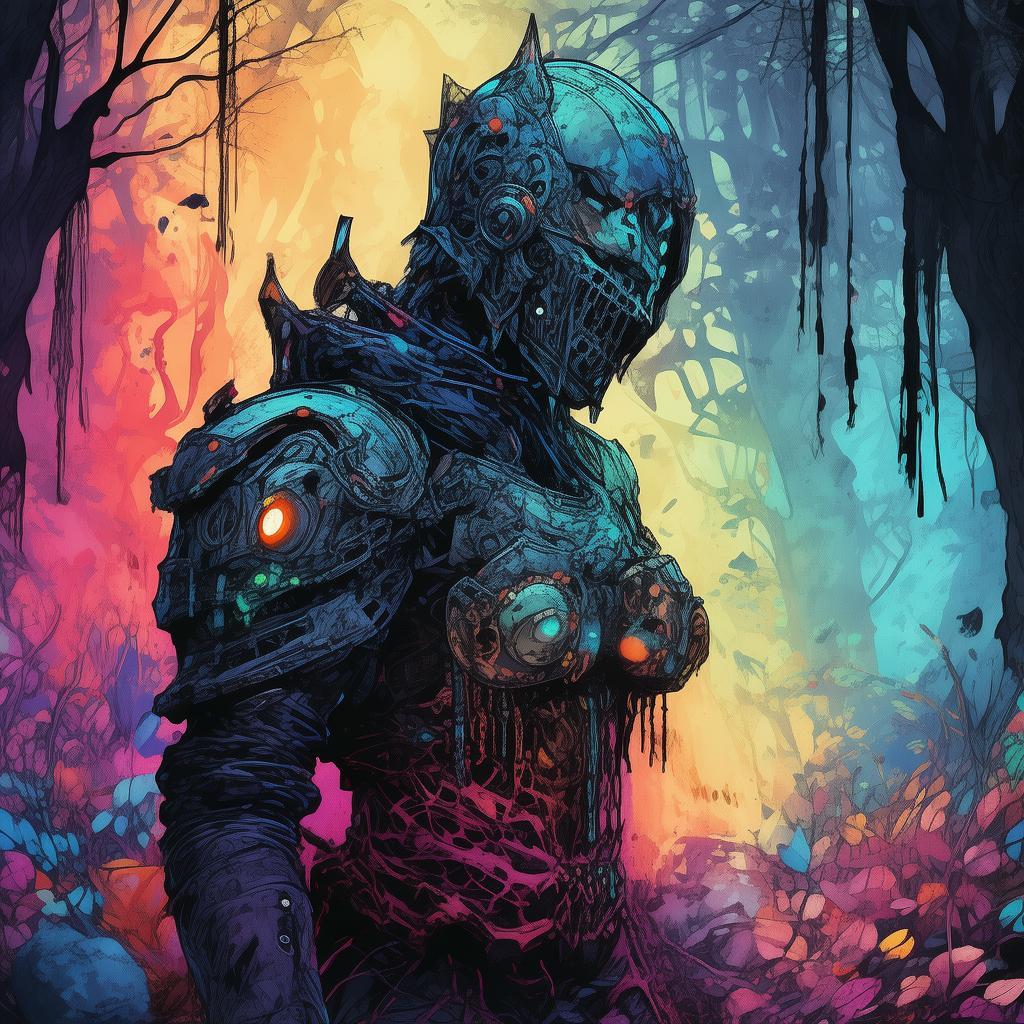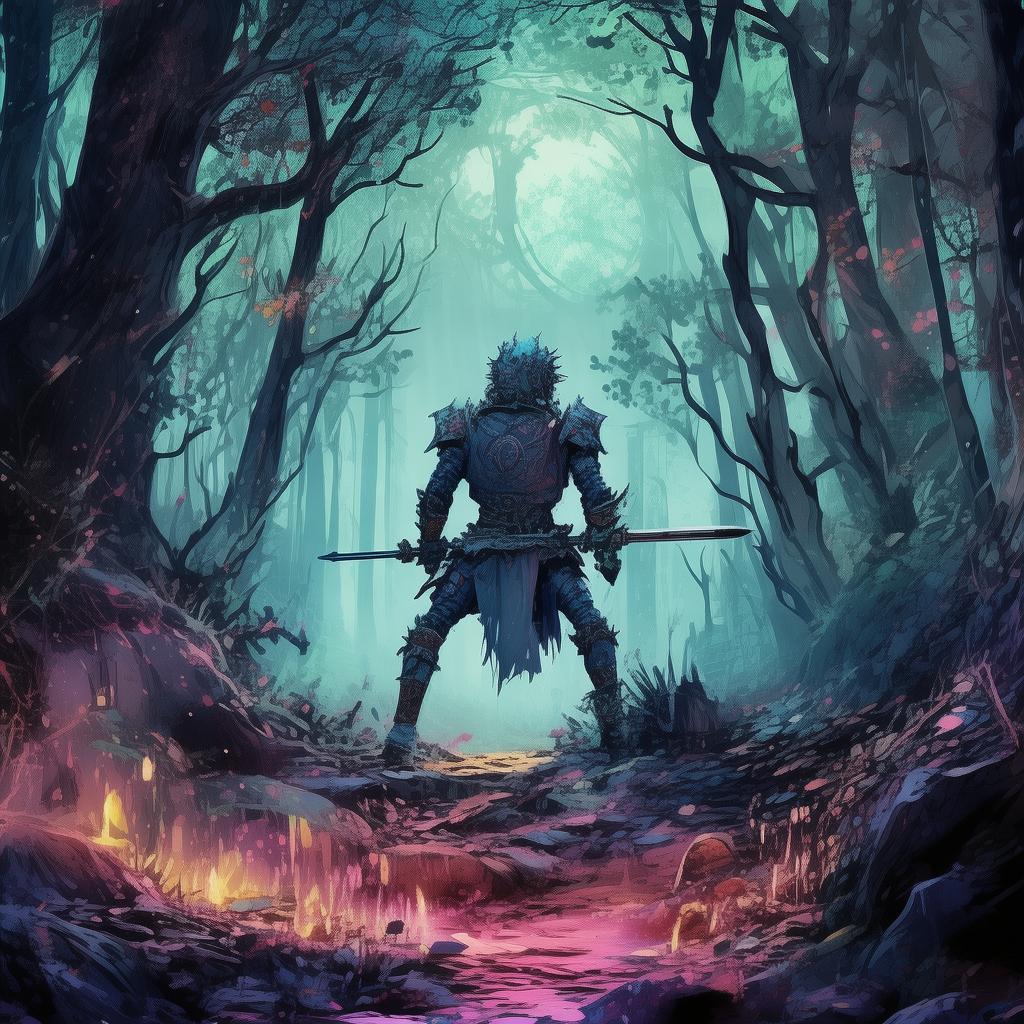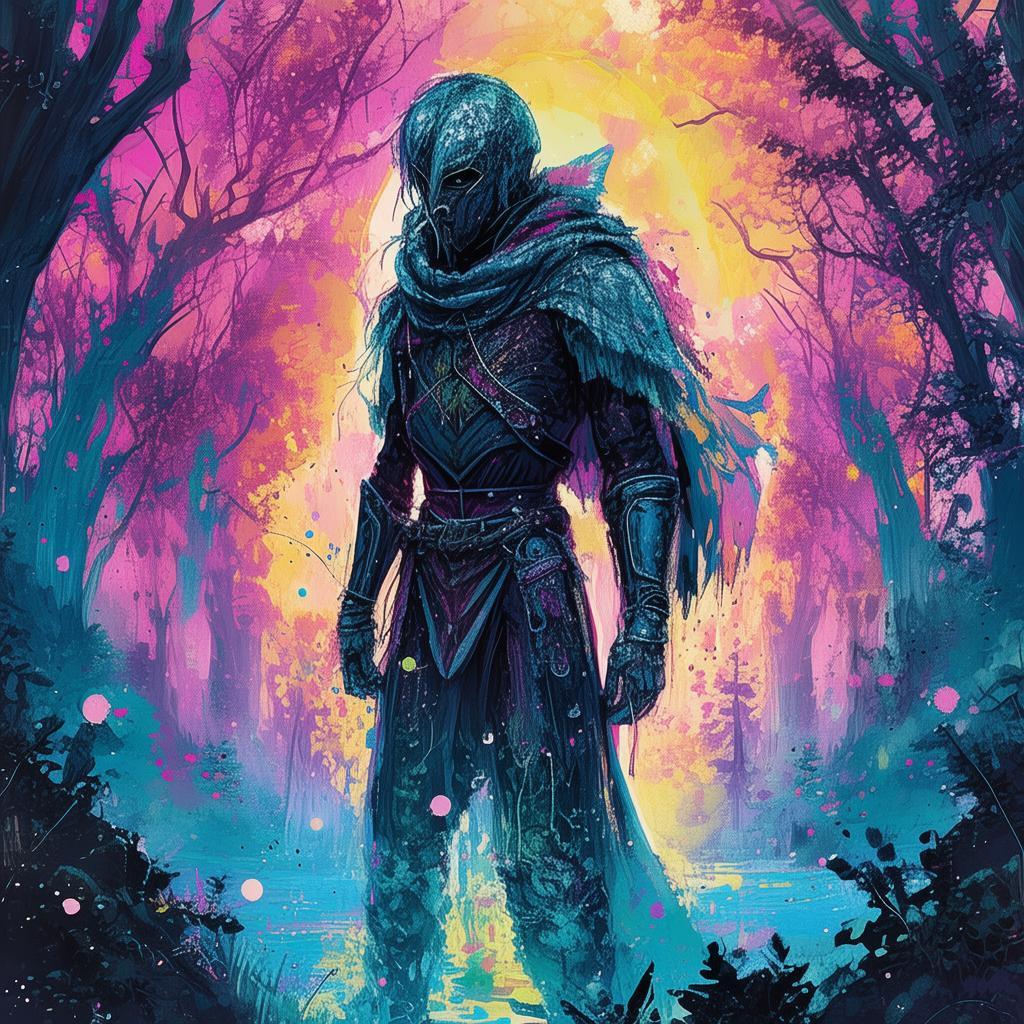The Scribe's Secret: The Forbidden Scroll of Immortality
In the heart of ancient China, where the whispers of the gods mingled with the scent of incense, there lived a scribe named Ling. His name was known far and wide, for he had a gift that few could claim: the ability to translate the ancient scripts that had been hidden away for centuries. His skill was so great that he was often called upon by the highest of officials, the emperor himself, to decipher the enigmatic texts that adorned the walls of the Forbidden City.
Ling was not a man of great ambition, but he was driven by a thirst for knowledge and a desire to uncover the mysteries of the world. It was during one such mission that he stumbled upon a scroll that was said to hold the secret to immortality. The scroll was said to be the work of a forgotten sage who had once lived among the stars and the heavens.
The scroll was bound in leather that had turned to a deep, iridescent blue, and its edges were adorned with symbols that seemed to dance with an ancient power. The scribe's heart raced as he unrolled the scroll, revealing a series of cryptic runes that promised eternal life to those who could decipher their meaning.
Ling knew that this was a quest that could change his life forever. He began to study the scroll, but as he delved deeper into its secrets, he realized that the path to immortality was fraught with peril. The scroll spoke of a series of trials, each more dangerous than the last, and it was only by completing these trials that one could hope to achieve the fabled immortality.
The first trial was to find the legendary Fanjing, a mystical place said to be hidden in the heart of the mountains. It was here that the scribe would be tested by the spirits of the ancestors. Ling set out on his journey, guided only by the cryptic clues left on the scroll.
As he traveled through the mountains, Ling encountered a myriad of challenges. He faced treacherous paths, ravenous beasts, and the ever-present threat of the elements. But the greatest danger came from the other seekers of immortality, who were not above resorting to violence to claim the scroll for themselves.
One such seeker was a cunning woman named Mei, who had her own reasons for seeking the scroll. She was a sorceress, and she believed that the power of immortality could allow her to bend the will of the gods themselves. Mei was not above using her dark arts to thwart Ling's progress, and on more than one occasion, she came close to succeeding.
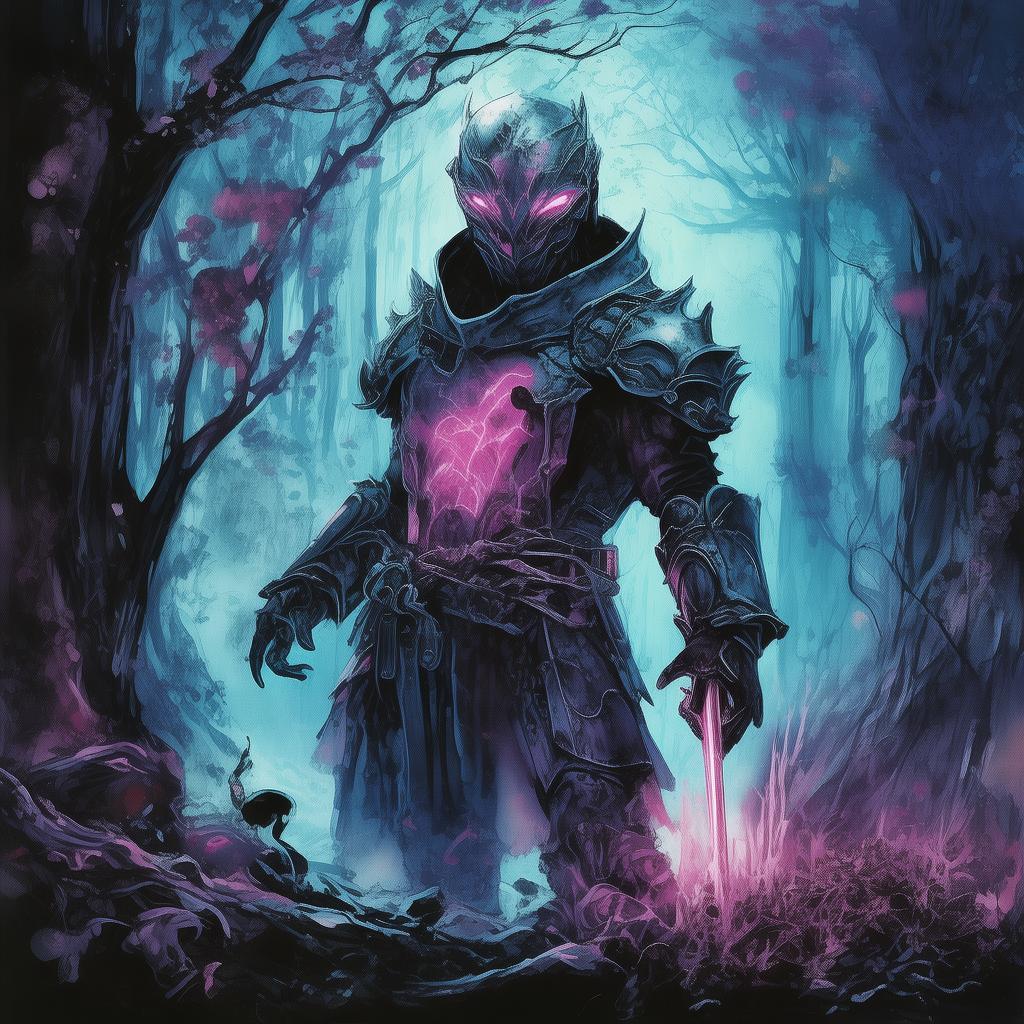
But Ling was determined. He had seen the scroll's promise of eternal life, and he was willing to face any danger to claim it. He used his knowledge of the ancient scripts to decipher the scroll's clues, and with each step, he grew closer to his goal.
Finally, after days of travel, Ling reached the entrance to Fanjing. The air was thick with the scent of pine and the sound of rushing water. He stepped through the threshold, and before him lay a great hall, its walls adorned with the faces of the ancestors, each one watching him with eyes that seemed to pierce through time.
Ling was greeted by a spirit, an ancient ancestor who spoke with a voice that resonated through his very soul. The ancestor tested Ling's worthiness, asking him questions about the scroll and the trials he had faced. Ling answered truthfully, and the ancestor nodded, satisfied.
The second trial was to face the spirit of the Dragon King, a being of immense power and wisdom. Ling was taken to the bottom of the sea, where the Dragon King awaited him. The Dragon King tested Ling's knowledge of the ancient texts and his ability to navigate the treacherous waters beneath the waves.
Again, Ling passed the test, and the Dragon King granted him the next clue, which led him to the final trial: the Great Test of the Heart. This trial would determine whether Ling's heart was pure enough to wield the power of the scroll.
The Great Test was a riddle, a riddle that had no answer in the scroll. It was a test of Ling's intuition, his understanding of the world, and his place within it. He was given a single clue: "The answer lies in the heart of the world, where the past and the future meet."
Ling wandered the world, searching for the answer, until he found himself in the heart of the Forbidden City, standing before the emperor himself. The emperor, who had once sought the scroll, now realized that the true power of the scroll was not in the promise of eternal life, but in the wisdom it held.
The emperor revealed that the answer to the riddle was the Scribe's Oath, a promise to record the truth and the wisdom of the world, to preserve the knowledge of humanity for future generations. It was a promise that Ling had already made, and it was through this promise that he had passed the Great Test of the Heart.
With the scroll now in his possession, Ling returned to the world, but he was no longer driven by the desire for immortality. Instead, he used the scroll's power to record the legends and the wisdom of the world, to ensure that the stories of the ancestors would never be forgotten.
And so, the scribe's journey came to an end, but his legacy lived on. The Scribe's Oath became a symbol of the power of knowledge and the importance of preserving the past for the future. And in the heart of ancient China, the legend of the scribe who had sought the scroll of immortality was told and retold, a testament to the enduring power of the written word.
✨ Original Statement ✨
All articles published on this website (including but not limited to text, images, videos, and other content) are original or authorized for reposting and are protected by relevant laws. Without the explicit written permission of this website, no individual or organization may copy, modify, repost, or use the content for commercial purposes.
If you need to quote or cooperate, please contact this site for authorization. We reserve the right to pursue legal responsibility for any unauthorized use.
Hereby declared.

